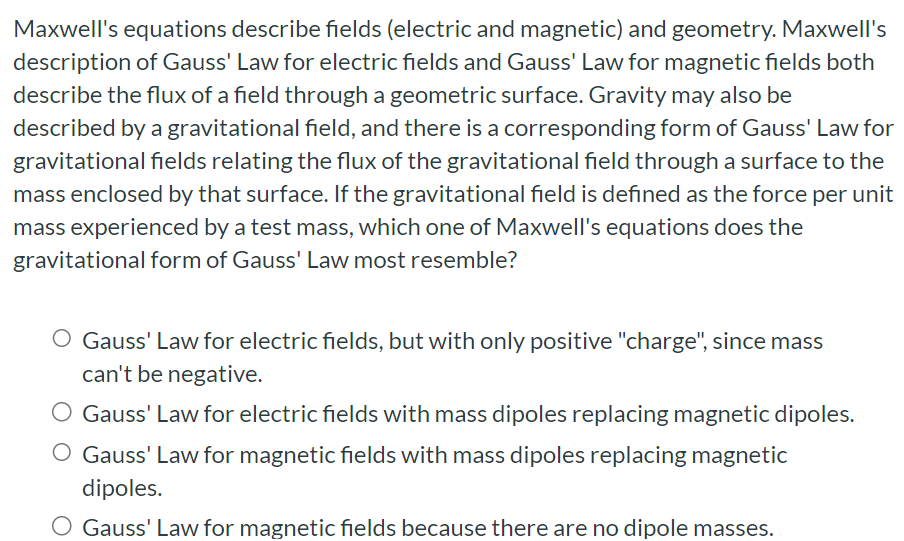Maxwell's equations describe fields (electric and magnetic) and geometry. Maxwell's description of Gauss' Law for electric fields and Gauss' Law for magnetic fields both describe the flux of a field through a geometric surface. Gravity may also be described by a gravitational field, and there is a corresponding form of Gauss' Law for gravitational fields relating the flux of the gravitational field through a surface to the mass enclosed by that surface. If the gravitational field is defined as the force per unit mass experienced by a test mass, which one of Maxwell's equations does the gravitational form of Gauss' Law most resemble? Gauss' Law for electric fields, but with only positive "charge", since mass can't be negative. Gauss' Law for electric fields with mass dipoles replacing magnetic dipoles. Gauss' Law for magnetic fields with mass dipoles replacing magnetic dipoles. Gauss' Law for magnetic fields because there are no dipole masses.
